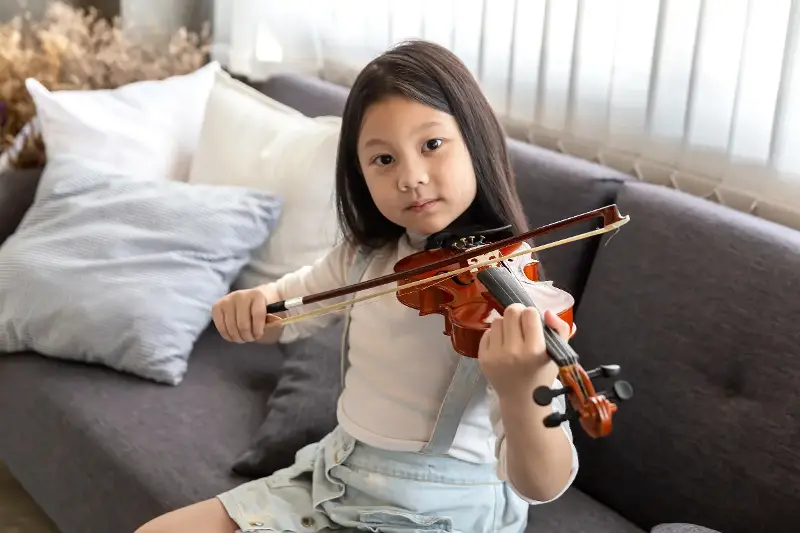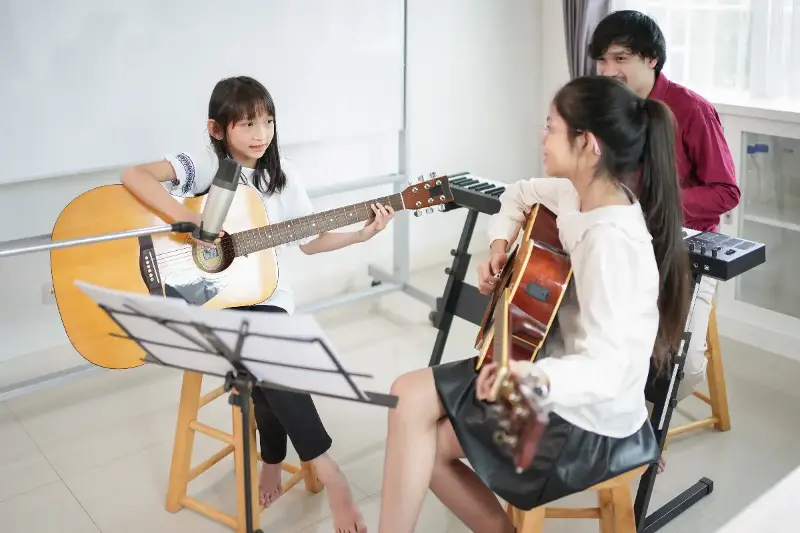Picture a child’s fingers fluttering across the keys of a piano, curiosity flickering in their eyes as the first tentative notes fill the room. This scene is not just charming—it’s transformative. Research shows that when children engage with music, they’re doing much more than developing a skill; they’re cultivating rich wells of emotional intelligence and unleashing powerful creative expression. Whether it’s strumming a guitar, singing in a choir, or exploring the joyful chaos of a drum kit, music can be a cornerstone in raising empathetic, expressive young individuals.

The Symphony of Emotions: How Music Teaches Emotional Awareness
Children are naturally drawn to melody and rhythm—think of the way a gentle lullaby soothes a fussy infant or a lively beat gets toddlers giggling and dancing. But music’s magic goes much deeper. When children immerse themselves in learning an instrument or singing, they begin to connect sounds with feelings. Minor chords can evoke sadness, while a bright major scale can spark happiness.
- Recognising and Naming Feelings: Through music, children learn to identify different emotions in both themselves and others, laying foundations for empathy.
- Safe Outlet for Expression: Music offers a non-verbal language for children who might struggle to articulate complex feelings, providing them with a safe creative outlet.
Studies show children involved in music education not only score higher in emotional intelligence tests but also demonstrate increased self-awareness, confidence, and resilience.
Unlocking Creativity: Letting Imagination Take Centre Stage
Music is a living, breathing art—one that encourages spontaneous creation and imaginative exploration. When a child composes a simple melody or improvises their own rhythm, they’re flexing creative muscles essential for problem-solving and innovation later in life.
- Storytelling Through Sound: Music invites children to build worlds, tell stories, and communicate ideas without the limits of language.
- Boosting Brainpower: Studies reveal that musical training stimulates the brain’s creative regions, enhancing cognitive flexibility and divergent thinking.
Allowing room for improvisation and experimentation is crucial. Encourage your child to make mistakes, explore odd sounds, and invent new harmonies—you may be surprised at what masterpieces emerge from the chaos!

Social Harmony: Building Empathy and Teamwork
Music rarely exists in isolation; it’s most powerful when shared. Group lessons, school bands, or even casual jam sessions foster collaboration and the subtle give-and-take of group dynamics.
- Listening and Reciprocity: Playing music in a group requires children to listen keenly, anticipate changes, and adapt on the fly.
- Respect and Connection: Children learn to respect differences—valuing each unique contribution, whether it’s a soft triangle chime or a thundering drumroll.
These experiences help children grasp the importance of cooperation, patience, and kindness—qualities that echo throughout adulthood.
Practical Tips for Parents: Planting Musical Seeds
Making music an everyday joy doesn’t require expensive lessons or instruments. Here are a few ideas to spark your child’s musical journey:
- Sing Together: Turn car rides or bedtime routines into mini concerts. Children benefit hugely from hearing and mimicking melodies.
- Explore a Variety: Expose your child to a rainbow of musical genres and traditions from around the world.
- Create a Musical Space: Dedicate a corner at home for small instruments or even homemade percussion.
- Celebrate Progress: Applaud even the smallest achievements (yes, that off-key recorder solo counts!).

How Music Shapes Hearts for Life
Embracing music is about so much more than mastering scales or hitting perfect notes. It’s about cultivating empathy, sparking imagination, and granting children a vibrant emotional toolkit for life. The soundscape they create as children often becomes the backdrop to their adult resilience, compassion, and inventive thinking.
As you nurture your child’s budding musical interests, consider: what stories might they one day tell through song? What emotions will they understand—both in themselves and others—because of these early notes? The journey has only just begun, and the possibilities resonate far beyond the final chord.
